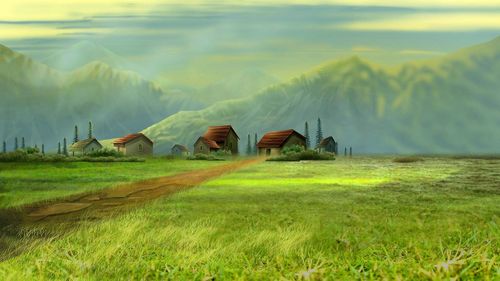Puerto Rico, the Caribbean island located east of the Dominican Republic and west of the US Virgin Islands, is a land of rich culture and traditions that span centuries. Over the years, through the blend of Spanish, African, and indigenous Taino influences, the Puerto Rican culture has become a vibrant mix of colorful music, dance, and art, with food being a cornerstone of the local ethnic identity.
One of the most notable cultural aspects that define Puerto Rican heritage is the bomba music and dance genre, which originated back in the 17th century. The music features traditional percussion instruments, while the dance is characterized by intricate footwork and merengue-like moves. Another musical genre that is equally important to the island’s culture is salsa, which has had an enormous impact on popular music worldwide.
In addition to music, the Puerto Rican culture is heavily influenced by its cuisine. The Puerto Rican cuisine is a unique fusion of Spanish and African ingredients brought to the island during the colonization period. One of the most popular Puerto Rican dishes is the mofongo, which consists of mashed plantains filled with seafood or meat. Another staple of local cuisine is the arroz con gandules, which is rice cooked with pigeon peas, pork, and a mix of spices.
The Puerto Rican culture also has a strong religious foundation, which is represented through a mix of Catholicism and African spiritualism. Santeria, a mix of Catholicism and West African spirituality, is a prominent religion on the island. The processions of the Catholic Church, such as Good Friday and the Feast of the Three Kings, are celebrated with great fervor and are essential components of Puerto Rican culture.
Puerto Rican culture has also been heavily influenced by literature, with many notable authors such as Pedro Juan Soto and Julia de Burgos gaining worldwide recognition. The themes of their works are often centered on social injustices, poverty, and the struggle to find one’s identity in a world heavily influenced by colonialism.
In conclusion, Puerto Rican culture is a rich blend of various influences that have been preserved and celebrated over the centuries. The music, dance, cuisine, religion, and literature all play an important part in shaping the island’s identity. The unique mix of African, Taino, and Spanish influences has created a vibrant and colorful culture that is known and celebrated worldwide.
(Note: Do you have knowledge or insights to share? Unlock new opportunities and expand your reach by joining our authors team. Click Registration to join us and share your expertise with our readers.)
Speech tips:
Please note that any statements involving politics will not be approved.
